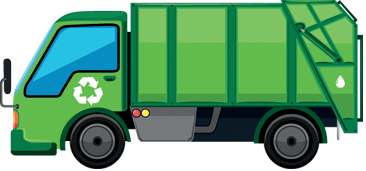
14 million – that is the approximate number of households in England that recycle their waste. That may sound promising but the truth is that recycling rates in the country have been falling for the past one year. That is maybe because people continue to be largely unfamiliar with many key facts about recycling. For example, did you know that:
- Recycling paper waste saves not only trees but also a huge amount of water
- It is faster to recycle an old aluminium can than it is to make a new one from scratch
- It takes between 450 and 1,000 years for plastic to decompose
- San Francisco recycles about 80% of its waste making it the city that recycles the most in the world
A recycling-related question that a lot of people struggle to answer is: can recyclable items be recycled more than once?
So, can they?
The answer is a bit more complicated than one might expect. Just like there is waste that is recyclable and non-recyclable, there is recyclable waste that can be recycled only once and items that can be recycled multiple times.
Only once
Certain types of plastic cannot be reused which is bad news given that this material takes such a long time to biodegrade on its own. This type of plastic is used for the production of plastic cups and plastic milk bottles, for instance. Still, this material comes in several types and some of them can be recycled… twice. The reason why we cannot reuse plastic is because it easily breaks down.
More than once
Paper is one of these categories of waste that can survive the recycling process more than once. Depending on the thickness and structure of the paper material, it can be reused up to 7 times. uPVC, a material used in the production of window frames, can be recycled up to 10 times. Hemp paper can undergo recycling 15 times.
An infinite number of times
Yes, you read that right! There are some materials that be recycled an infinite number of times. This sounds truly mind-blowing but it is scientifically-proven that some metals can be recycled as many times as one wishes to recycle them. That is because every metal known to mankind has an infinite lifespan.
Aluminium can also be reused for an eternity. The same goes for aluminium cans. This means that beverages which are sold in aluminium cans are much more environmentally friendly compared to those that come in plastic bottles. Now that we have armed you with that valuable piece of information, you can make a more informed consumer’s choice.
 Gypsum is a material used for the making of plasterboards and it too can be recycled infinitely. So, next time you are renovating your home, use safe plasterboard collection services in London. In that way, your old construction materials will be sent to a recycling facility and not to a junk depot.
Gypsum is a material used for the making of plasterboards and it too can be recycled infinitely. So, next time you are renovating your home, use safe plasterboard collection services in London. In that way, your old construction materials will be sent to a recycling facility and not to a junk depot.
What about glass? It also goes under section “infinite recycling.” That is fantastic given that it takes 1 million years for a tiny glass bottle to decompose.

